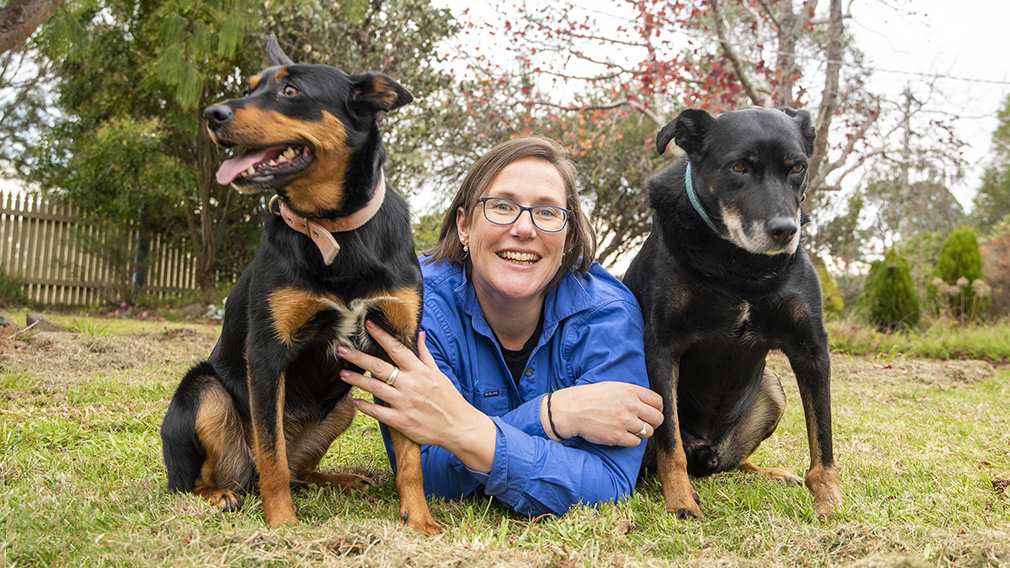
By Kelly Barnes.
My introduction to research began when I commenced my BSc (hons) in Animal Health at Harper Adams University in the UK back in 2001. I found my passion within livestock production and in my final year completed my honours thesis looking at feeding Omega 3 fatty acids to pregnant ewes to increase lamb survival. This involved countless hours spent in the midst of winter observing lambing ewes, timing births and how long it took for the lambs to stand and suckle. Collecting data was at the forefront of my thesis, from weighing differing feed allocations, measuring milk production and composition in ewes and the immune response of ewes and lambs measured through blood samples taken. More recently I was fortunate to lend a hand in a pasture trail here in Western Victoria, which involved pasture cuts, weighing, sorting and drying samples. I was fascinated and intrigued, despite plants not being my first love.
My focus has shifted away from producing healthy sheep and pastures to promoting healthy farmers. Nevertheless, my inquisitive side is still strong and I am excited to have the opportunity to explore a topic that I have been considering for some time. With lived experience of working on farms and in rural service provider roles together with my highly empathic nature, I couldn’t help but see the impact that working day after day with farmers through challenging times has on those in agricultural service providing roles. The genuine connection that service providers form with their clients is above and beyond their role, yet is such a natural progression in a small rural community.
So the question I have been asking is – what are we doing to support these people?
Fast forward through many thoughts and ideas, I was encouraged to bring this question to the table at our monthly research brainstorming meetings and my little seed began to grow! I applied and was accepted to join the emerging researcher program with Western Alliance and have just completed day 1 of the program better known as the STaRR program. The program is aimed at early-stage researchers teaching research skills, and providing feedback and input on ideas with the end goal of guiding them to develop a research protocol and a completed literature review.
The cobwebs are being dusted off, the cogs are starting up again, and I am slowly being reminded of all those hazy lectures from the early 2000’s! With previous work in animal research, not human research, and mostly data collection as opposed to project design, these new skills place me in a place of growth, with the opportunity to learn and combine my previous knowledge and experience with new ways of measuring and evaluating.
With journal articles and highlighters at the ready, I joined the full-day Zoom session for the first day of the program. We heard from knowledgeable researchers and other early researchers like myself. As the day went on our vague big-picture research concepts were tweaked and trimmed to become tangible research questions. The program is designed to fit in around busy clinical schedules and already full plates allowing 5 weeks to chip away at literature searching and catching up with assigned mentors before we regroup at the end of November for more research skills and training.
Stay tuned to find out what develops from this emerging researcher in part 2!!
|
|